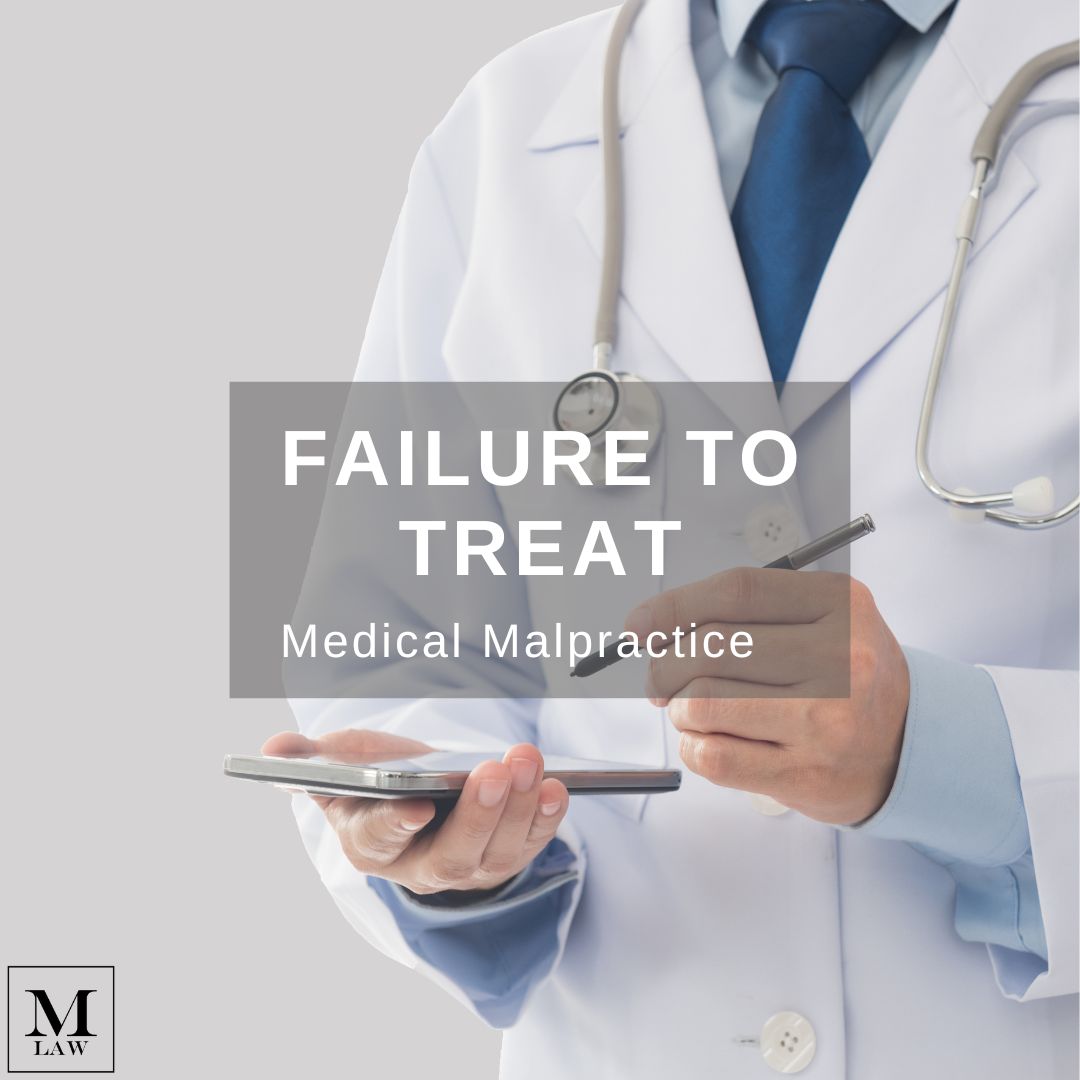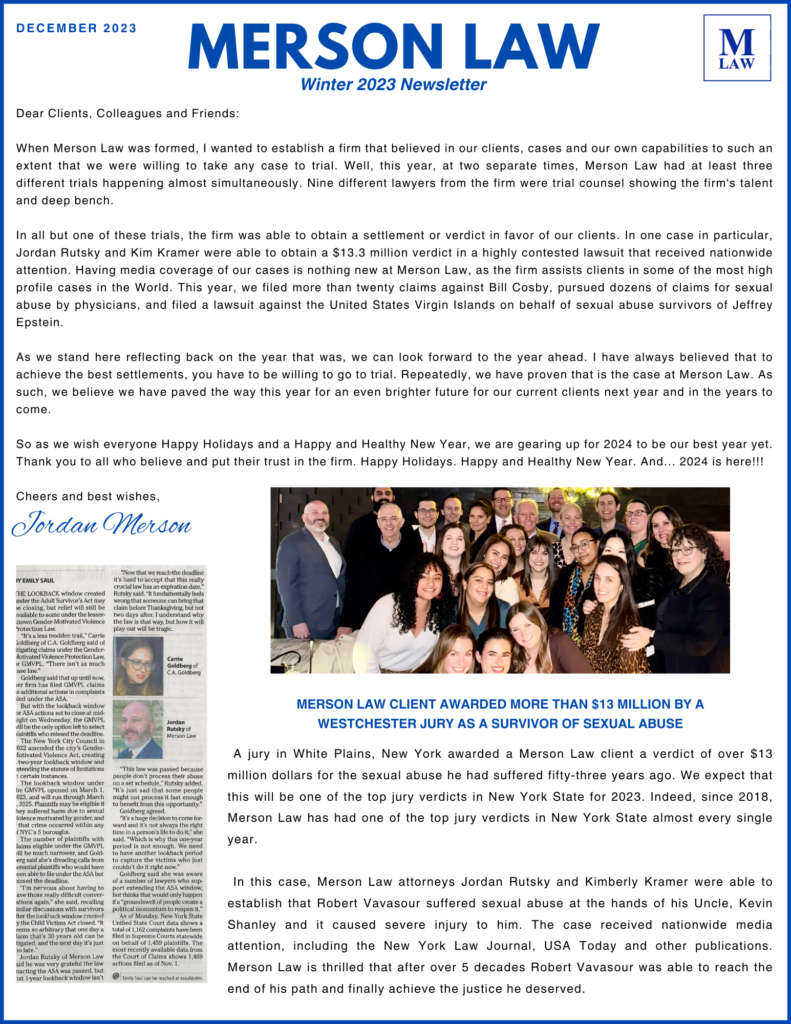A “failure to treat” case is a type of medical malpractice lawsuit where someone sues a healthcare professional or institution for failing to provide appropriate or necessary medical care.
As an example, failure to treat could be a situation where a patient arrives at an emergency department with severe abdominal pain and other symptoms indicative of a ruptured appendix. The healthcare providers fail to promptly evaluate the patient or order the necessary surgical intervention and this delayed treatment leads to a severe infection and life-threatening complications.
Failure to treat involves the failure to diagnose, manage, or treat a medical condition or injury in a manner consistent with the accepted standard of care.
The accepted standard of care is the level of care that a reasonably skilled and competent healthcare professional with similar training and experience would provide in the same or similar circumstances. When a healthcare professional fails to meet this standard and it results in harm or adverse outcomes for the patient, it can be considered a failure to treat.
What Failure to Treat Can Look Like
Failure to treat can take various forms, including:
- Failure to diagnose: This occurs when a healthcare professional fails to correctly identify a patient’s medical condition or fails to recognize the severity or significance of a condition. It may involve overlooking symptoms, misinterpreting test results, or not ordering appropriate diagnostic tests.
- Delayed treatment: When a healthcare provider does not promptly initiate necessary treatment or delays in providing appropriate care, it can lead to worsening of the patient’s condition, complications, or adverse outcomes.
- Inadequate treatment: This refers to situations where a healthcare professional provides treatment, but the treatment is substandard or insufficient to address the patient’s condition effectively. It may involve improper medication dosages, inappropriate interventions, or neglecting necessary follow-up care.
- Failure to refer: Sometimes, a healthcare provider may fail to recognize the need for a specialist’s expertise and not refer the patient to a more specialized healthcare professional. This can result in delayed or inadequate treatment.
- Failure to monitor: In certain cases, ongoing monitoring and observation of a patient’s condition are essential. If a healthcare provider neglects to monitor the patient appropriately or fails to recognize warning signs of deterioration, it can be considered a failure to treat.
If something like this happened to you, you may have the opportunity to pursue a failure to treat lawsuit, through which you could get compensation for injuries you sustained.
Failure to Treat Lawsuit
If you’re looking to pursue a failure to treat lawsuit, here is a general overview of how it works:
- Consultation with an attorney: The first step is to consult with a qualified attorney specializing in medical malpractice cases. The attorney will evaluate the details of the case, including the medical records, expert opinions, and the circumstances surrounding the failure to treat. They will assess whether there is a viable claim and advise on the legal options.
- Gathering evidence: To support the lawsuit, the attorney will work with the client to gather relevant evidence. This may include medical records, test results, expert opinions, witness statements, and any other documentation that can help establish negligence or deviation from the accepted standard of care.
- Expert review: Medical malpractice cases often require expert opinions to establish that the healthcare professional’s actions or omissions deviated from the accepted standard of care. The attorney may consult with medical experts in the relevant field who can review the case and provide their professional opinion regarding the failure to treat and its impact on the patient’s outcome.
- Filing the lawsuit: If the attorney determines that there is a valid claim, they will file a lawsuit on behalf of the patient or their family. The lawsuit will outline the allegations against the healthcare professional or institution and the damages being sought.
- Discovery phase: Both parties engage in a discovery process where they exchange relevant information and evidence. This may involve depositions, interrogatories (written questions), requests for documents, and other forms of evidence gathering.
- Settlement negotiations: Before going to trial, there may be attempts at settlement negotiations between the parties. This involves discussions and potential offers to resolve the case without going through the entire trial process.
- Trial: If a settlement cannot be reached, the case proceeds to trial. During the trial, both sides present their arguments, call witnesses, present evidence, and cross-examine the opposing party’s witnesses. The judge or jury then decides whether the healthcare professional or institution was negligent in failing to provide appropriate treatment and whether this negligence caused the patient’s harm or adverse outcome.
- Verdict and potential appeal: After the trial, the judge or jury delivers a verdict. If the plaintiff prevails, damages may be awarded to compensate for medical expenses, pain and suffering, lost wages, and other losses. The defendant may have the option to appeal the verdict if they believe there were errors in the legal process.
The medical malpractice attorneys at Merson Law can help you through this process and potentially earn you more compensation than you’d get elsewhere. Get in touch with us today by calling our office or filling out our contact form.







